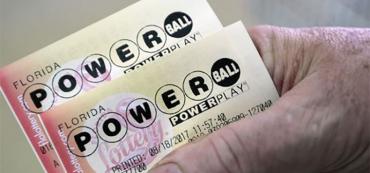
The House and Senate are currently working on a pair of matching bills involving the state lottery, and the results -- should they pass -- could see a drop in revenue funneled into the education system. Both bills contain two aspects that will impact the lottery, and while exact figures are not available, the results are essentially looked at as a drop in the net returns. The only real question is, by how much?
In the Senate lawmakers are working on SB 1264, and the House version is HB 629, with the primary focus being on the restriction of mobile lottery ticket sales. The bills will work to “prohibit the use of personal electronic devices to play, store, redeem, sell, or purchase lottery tickets or games.” This intention is to stem the likelihood of fraudulent websites that would defraud customers. There is also certainly a lobbying effort being made on behalf of the authorized retailers, as they are granted approximately a 3 percent portion of lottery proceeds.
The other aspect in the bills involves the inclusion of warning labels on lottery tickets and game cards. This is an expansion of a proposed law that was passed by the Legislature in 2017 that would have had a series of brief warnings that would rotate on the tickets. This new proposal calls for greatly expanded warnings, and that they comprise 10% of the area on the tickets and game cards. This would become the largest such warning of any state lotteries across the country.
The concerns over both issues regards how much they would become revenue drains on the lottery returns. The impact of the online ban of sales is difficult to measure, as there are no current means of these sales. This would entail then sales projections, and estimating the loss of potential revenue streams. The warning label issue carries some actual figures.
In that 2017 bill (which was ultimately vetoed by Gov. Rick Scott) projected potential losses due to the warning label was in the $235 million range. That figure is arrived at by studies done on prior warning labels placed on other products deemed as vices by governmental entities. Cigarettes and sugar-based sodas have been saddled with these labels, with varying measurements of results.
College studies have been done on these mandated warnings, and the range of impact varies. On the cigarette warning labels, it has been estimated over 7 percent of smokers may have been influenced. Another study on soda warnings showed the impact was upwards of 13 percent. While no such study has been done on lottery warnings, the percentages on these items were applied to provide a range of impact.
The lottery proceeds for Florida schools (following various other expenses such as payouts, general expenses, vendors' fees, and advertising) is earmarked to go towards the Educational Enhancement Trust Fund. If the warning labels have half of the impact of the cigarette labels, it could lead to a drop of $245 million in gross revenue, and a drop of over $63 million towards the EETF. Should it match the cigarette impact, then it would lead to nearly $500 million less in revenue and a $125-plus million loss for EETF, and as it approaches the soda warning label levels, the fund would be out in the realm of $-235 million.
This proposal is arriving just as the state teachers union is rolling out its campaign to underscore what it sees as a crisis in teacher numbers. The Florida Education Association is staging events and running commercials statewide that declare there is a serious shortage of educators, and that this is attributable to low funding of Florida schools. One commercial declares Florida in the bottom 10 percent of funding per student across the nation, leading to a shortage of teachers.
Also on the horizon are proposals from Gov. Ron DeSantis to award bonuses to teachers, and create a program of inducements to encourage more individuals to enter the teaching field. That enticement program alone is estimated to cost well over $400 million.
These conflicting pressures on the education budget are sure to lead to a sharp analysis of the lottery bills, and there is a strong possibility that if passed another veto could be on the horizon.
Brad Slager, a Fort Lauderdale freelance writer, wrote this story exclusively for Sunshine State News. He writes on politics and the entertainment industry and his stories appear in such publications as RedState and The Federalist.


